Robert J. Durrant
Linear Dimensionality Reduction in Linear Time: Johnson-Lindenstrauss-type Guarantees for Random Subspace
May 18, 2017


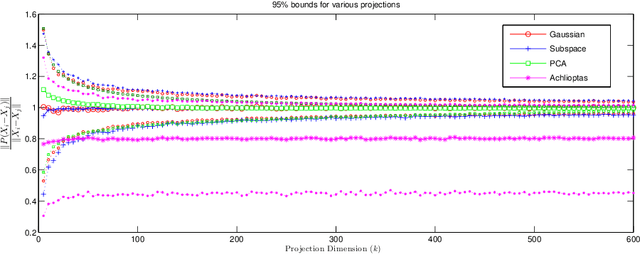
Abstract:We consider the problem of efficient randomized dimensionality reduction with norm-preservation guarantees. Specifically we prove data-dependent Johnson-Lindenstrauss-type geometry preservation guarantees for Ho's random subspace method: When data satisfy a mild regularity condition -- the extent of which can be estimated by sampling from the data -- then random subspace approximately preserves the Euclidean geometry of the data with high probability. Our guarantees are of the same order as those for random projection, namely the required dimension for projection is logarithmic in the number of data points, but have a larger constant term in the bound which depends upon this regularity. A challenging situation is when the original data have a sparse representation, since this implies a very large projection dimension is required: We show how this situation can be improved for sparse binary data by applying an efficient `densifying' preprocessing, which neither changes the Euclidean geometry of the data nor requires an explicit matrix-matrix multiplication. We corroborate our theoretical findings with experiments on both dense and sparse high-dimensional datasets from several application domains.
Maximum Margin Principal Components
May 17, 2017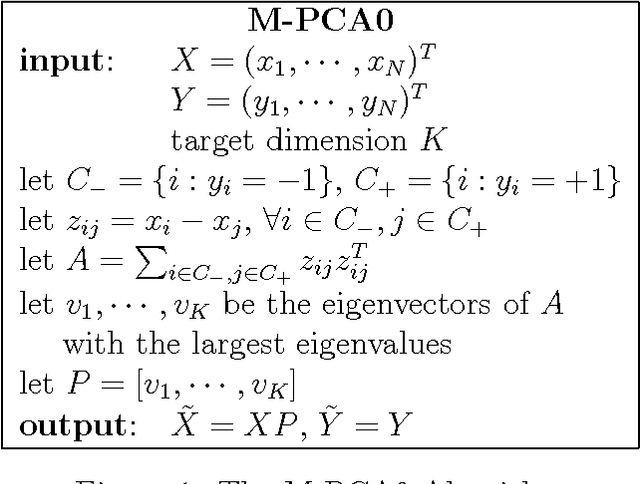
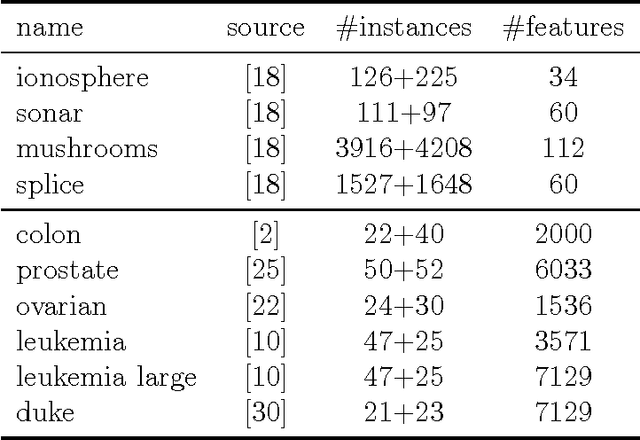
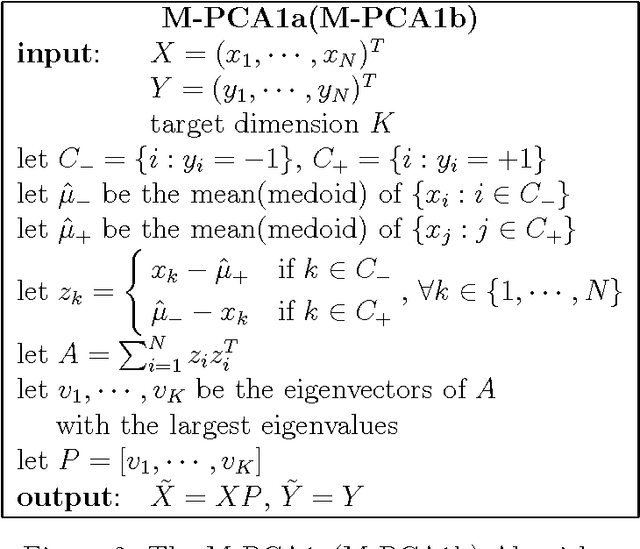
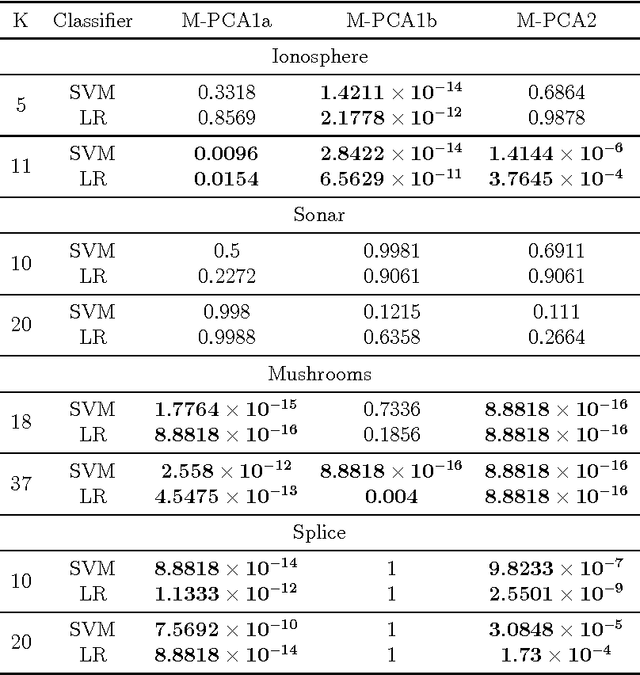
Abstract:Principal Component Analysis (PCA) is a very successful dimensionality reduction technique, widely used in predictive modeling. A key factor in its widespread use in this domain is the fact that the projection of a dataset onto its first $K$ principal components minimizes the sum of squared errors between the original data and the projected data over all possible rank $K$ projections. Thus, PCA provides optimal low-rank representations of data for least-squares linear regression under standard modeling assumptions. On the other hand, when the loss function for a prediction problem is not the least-squares error, PCA is typically a heuristic choice of dimensionality reduction -- in particular for classification problems under the zero-one loss. In this paper we target classification problems by proposing a straightforward alternative to PCA that aims to minimize the difference in margin distribution between the original and the projected data. Extensive experiments show that our simple approach typically outperforms PCA on any particular dataset, in terms of classification error, though this difference is not always statistically significant, and despite being a filter method is frequently competitive with Partial Least Squares (PLS) and Lasso on a wide range of datasets.
 Add to Chrome
Add to Chrome Add to Firefox
Add to Firefox Add to Edge
Add to Edge